The Magic of Microdosing Mushrooms. Guide for the Psychonauts
The Magic of Microdosing Mushrooms. Guide for the Psychonauts
There is a unique type of personality - that when they hear the word "psychedelic", their ears perk up just a bit. For many of us, we are fully aware of the powerful introspective and immensely spiritual & healing power of these unique compounds. Some describe the psychedelic trip as tapping into the eternal consciousness of life as a whole, and viewing yourself and your ego objectively from this divine source.
However not all psychedelics are consumed for this reason and taken to this extent. Many are beginning to see the huge benefits associated with sub-perceptive doses of psilocybin mushrooms or lsd (not enough to cause a noticeable reaction but enough to create the neural chemistry for unique things to begin happening in your brain). This sub-perceptual dose is called a "Microdose".
Microdosing refers to taking a small amount of a substance, such as LSD or psilocybin mushrooms (also known as shrooms), in order to stimulate the neural chemistry of its benefits without the noticeable "trip" or hallucinogenic effects.
What's so great about microdosing mushrooms is that it allows someone to experience the full benefits of a "trip" without actually having one. It essentially creates a bridge between taking a larger dose to feel the effects or not doing anything at all.
Typically, people use psychedelics on their own for self-analysis and self-reflection. A journey into your inner world with no judgment from outside forces, just you and your mind unadulterated by external stimuli. Microdosing can help with this sort of practice as well, but at much lower dosages in which there are "no hallucinations or mood swings." This could be called more of an experiment than anything else where the doer/experimenter becomes aware of what goes on around them and within themselves at different levels of consciousness while maintaining some control over the situation.
There are many reasons to try microdosing with mushrooms (or other psychedelics) as either an adjunct to psychotherapy or instead of it entirely. Clinical research over decades, along with recent studies, has shown that active components in psychedelic substances like psilocybin have a variety of effects on the brain that may be helpful in the treatment of mood and anxiety disorders. The beneficial effects include: increased optimism, imaginativeness, spirituality/inner clarity, positive mood and openness to life experiences; decreased rates of depression, anxiety attenuated fear response. The substances also generally cause increases in creative output in both the arts and sciences among users - this increase offsets potential negative consequences such as mental confusion or difficulty concentrating which are common when first using entheogens due to psychodynamic factors.
Microdosing can be done in many different ways, but this guide will focus on psilocybin mushrooms, as that is what most psychonauts are looking to learn about.
Microdosing Mushrooms Dosage:
Recommended dosages range from anywhere between .1 gram to .5 grams of dried Psilocybe cubensis mushrooms. A sub-perceptual dose doesn't have a full-on trip, but still creates a difference in brain functioning. The higher the dose of mushrooms microdosed, the stronger the effects will be. Microdosing with psilocybin mushrooms can be done every day at different times if needed. It is recommended to start with low doses and work your way up until you find what works for you.Benefits of Microdosing Mushrooms:
- Increasing overall happiness and mood
- Reducing stress or anxiety
- Enhancing cognition and creativity
- Heightening introspection
- Promoting mental clarity, producing a more grounded experience of the body.
- Potentially increasing performance at various tasks.
Microdosing Mushrooms has been found to reduce stress, allow individuals to form better relationships, find more creative options for solving problems, have higher IQ levels (thinking quicker), and improve brain function overall.
The positives speak for themselves: less anxiety, better relationships, enhanced creativity, improved cognitive function...across the board it is usually a success story when one doses in moderation.
How does microdosing mushrooms improve mental healing?
Psychedelics work because they are able to access insights that are otherwise hidden by the confines of our egos. This is what makes them such invaluable tools of personal transformation and self-acceptance. Microdosing on psychedelics can also function under the same principle- just at much lower intensities so that one still has full awareness of their surroundings but with subtle shifts in perspective which can yield informative results when it comes to insightfully analyzing yourself or your behavior in certain areas.
This is primarily what makes microdosing on psychedelics such as LSD and Psilocybin Mushrooms so effective for healing and self-care.
How does microdosing mushrooms improve creativity?
Microdosing is believed to enhance creativity by causing a burst of new and different connections in the brain. It is thought to increase divergent thinking, or the ability to think of many possible solutions to one problem. Psychedelics may also increase the amount of time spent thinking about a problem, without actually solving it. This prolonged thought process is thought to create a greater number of possible solutions, which can ultimately lead to a more creative solution.
In a more technical aspect the enhancement of creativity is the believed to be due to increased neuroplasticity from serotonergic agonism in the prefrontal cortex.
Neuroplasticity is the brain’s ability to create new neural pathways and change its structure. One of the main effects of psychedelics is to grow new connections between neurons. This is especially important in the prefrontal cortex (PFC), an area of the brain associated with complex cognitive behavior, decision making, attention, and working memory.
During a 'trip' or psychedelic experience one's ordinary perceptual and emotional processes are disrupted, creating "temporary schisms in ordinary consciousness". As a result, information is experienced in novel ways.
While these insights could potentially be induced by other means (including psychotherapy), psychedelics allow users to instinctively tap into their own brain chemistry through this "disruption of ordinary consciousness". So while psychedelics can damage neurological pathways if abused or used incorrectly, they also first disrupt usually comfortable thought patterns and engender new ideas off of the existing neural network - subsequently building upon it through self-feedback mechanisms (i.e., selective neurotransmitter receptor sites).
This confluence affects perception and cognition which goes hand in hand with an enhanced sense of spiritual connection or insight as well as heightened tendency towards introspection even after these substances wear off - perhaps because such experiences call into question mundane modes of living plainly incompatible with high spiritual ideals for some people, despite how primally pleasurable those pathways may once have been programmed over thousands if not millions of years ago. During our evolution for survival based on reward circuitry (such as olfactory related sexual rewards).
Studies have shown that psychedelics can increase the density of neuronal dendrites (the areas of the neuron that receive signals) and the number of synapses, (the connections between neurons). This means that neurons can communicate with each other more efficiently, and the brain becomes more flexible and creative.
The way psychedelics affect the brain’s filtering of information is less clear, but current theories suggest that psychedelics cause the brain to become less “noisy” and, therefore, allow weak signals to be perceived. This could explain why people often report having “aha” moments and insights under the influence of psychedelics.
How does microdosing improve cognitive impairment?
Many individuals who have experienced a decline in cognitive functioning from a variety of causes, such as chronic stress, depression, or other medical conditions, have reported that microdosing has improved their cognitive functioning. This could be due to the fact that psychedelics are known to reduce activity in the default mode network (DMN), a network of brain regions that is significantly activated during rest and is associated with introspection and self-processing. The DMN is most active in the following brain regions: the posterior cingulate cortex, the medial prefrontal cortex, the lateral parietal cortices, and the temporoparietal junction.
A more recent study found that microdosing significantly reduced DMN activity in both the posterior cingulate cortex and the medial prefrontal cortex. This finding supports the idea that psychedelics may be able to improve cognitive functioning by minimizing the brain’s tendency to get caught up in its own processing.
How does microdosing mushrooms improve the ability to focus?
Microdosing is believed to strengthen mental clarity and one's ability to focus. The chemical psilocybin is the psychoactive ingredient in mushrooms; it has been shown to cause blood flow to the prefrontal cortex, the area of the brain responsible for focus and concentration. This is thought to be one of the reasons why psychedelics are often used to treat ADD and ADHD.
How does microdosing mushrooms improve empathy?
Microdosing is believed to increase empathy and promote compassion. It has been shown that psychedelics increase activity in the parts of the brain responsible for empathy, known as the temporal parietal junctures (TPJ), and the default mode network (DMN). The DMN is a network responsible for internal awareness, and it is activated when we daydream or think about ourselves. Psychedelics cause this network to become more active, which helps people understand their own thoughts and feelings. When combined with an understanding of others, this can lead to increased empathy.
There are a few things to keep in mind when planning to microdose.
- For the best experience, plan to take your dose in the morning.
- Set & Setting is vital
- For most people, Microdosing works well with a healthy, balanced diet and getting enough sleep.
- It is also advisable to take the microdose on an empty stomach, before eating.
- Drink a lot of water while microdosing and stay hydrated.
- Do not combine microdosing with other substances unless well documented and researched (Check list of synergistic compounds below)
It is recommended that those who are new to microdosing start with a much smaller dose than they think they need. This is because it is very difficult to gauge the strength of the psilocybin mushrooms that one has purchased, and too much can lead to unpleasant side effects or a “bad trip”.
Best supplements or otherwise "enhancements" to the mushroom microdose experience.
1. Lions Mane Extract. Lions mane extract works synergistically with Psilocybin to promote Nerve Growth Factor which creates new healthy neurons from neural stem cells and protects existing neuronal connections.
2. Agaricus Blazei Extract: Studies have shown this mushroom has amazing neuro-protective properties and also potent anti-inflammatory effects. It protects the brain cells while they are making new connections throughout their natural production of Nerve Growth Factor.
3. Choline and other Brain Fuel Nutrients- Choline is Critical to the brain's function because the liver converts it to Acetylcholine, an essential neurotransmitter that helps transmit signals from one brain cell to the next. This process is called synaptic transmission.
4. High quality Fish Oil or Krill Oil- Omega 3 essential fatty acids are essential for this to work correctly. Make sure they are high molecular weight and from a highly rated fish oil company like Nordic Naturals.
5. Mushroom Antioxidants - I use Shilajit Extract combined with Boswellia Extract, these herbs have potent antioxidant properties that also zero in on adenosine receptors increasing memory consolidation and other healthy brain aging effects.
6. A Magnesium Supplement (Magnesium Glycinate) is very important because it helps improve neurotransmission in the brain by enhancing NMDA receptor activity, while inhibiting reuptake of GABA-A neurotransmitters which allows them to continue stimulating neurons and helping you relax deeply while microdosing mushrooms!
7. Gratitude Exercise Journal - to note what you experience and how grateful you are for the things in your life.
8. Proper Rest- This is vitally important, abstain from microdosing during late into the evening if possible because sleep disturbs serotonin receptor sites often resulting in a short term serotonin syndrome causing anxiety, agitation, or other very undesired side effects.
9. Optional (But I do this) - Zinc Citrate Powder daily 50mg-1g to enhance memory ability. Take Probiotics daily to maintain healthy gut flora for better absorption of nutrients and greater well being overall.
10. EGCG from Green Tea can also be neuro-protective and help with anxiety and depression effects.
We hope you were able to gain some insight and value from this article and wish you warmth and prosperity on your journey into the world of microdosing!

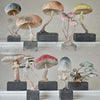
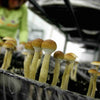
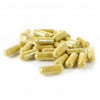

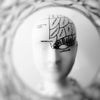
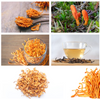
Leave a comment
Please note, comments must be approved before they are published